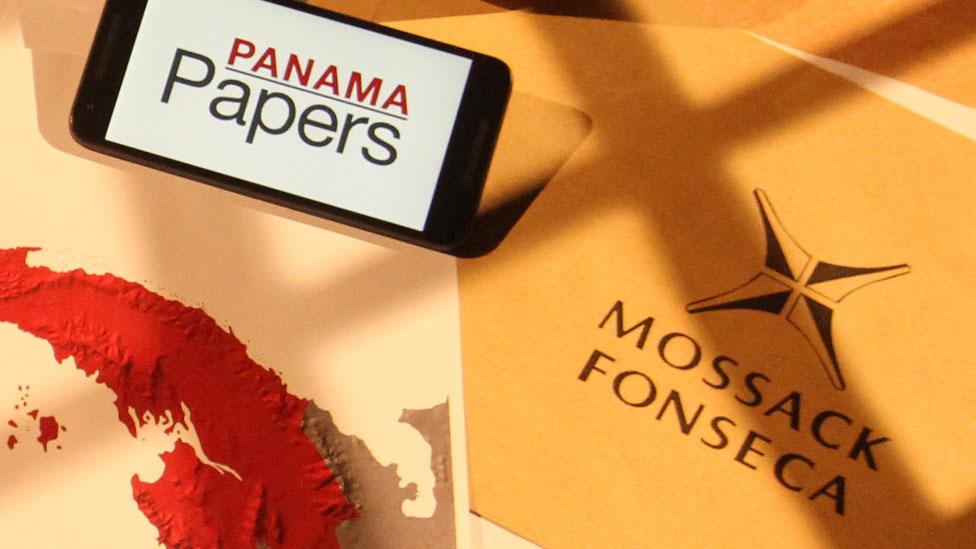Pakistani ex-PM Nawaz Sharif banned from leading his party
- Published
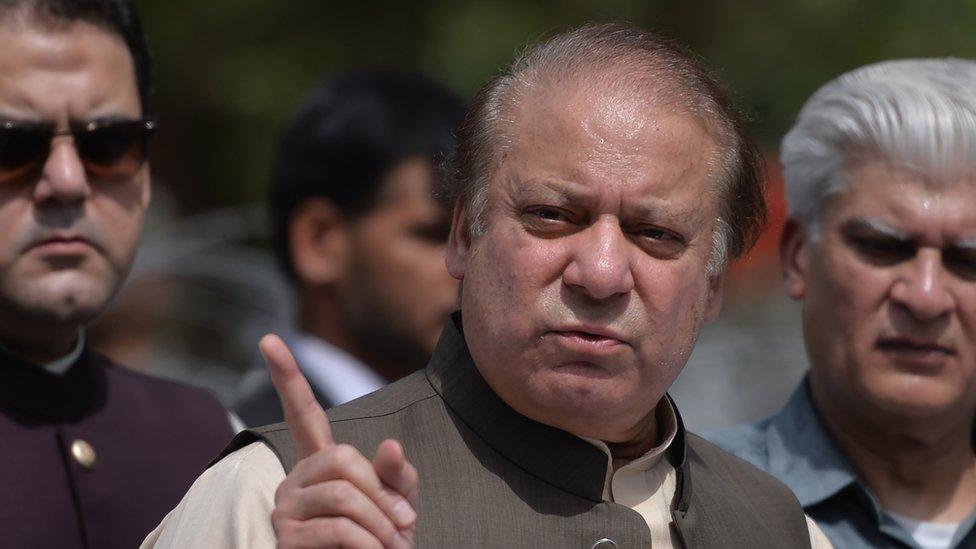
Nawaz Sharif (centre) denies any wrongdoing
Pakistan's Supreme Court has disqualified former prime minister Nawaz Sharif as head of his party.
Mr Sharif was ordered to step down as prime minister last year amid corruption allegations that he denies.
The court ruled that his earlier dismissal from office made him ineligible to lead the PML-N.
All decisions taken by Mr Sharif while head of the party were declared void, including nominations for candidates in Senate elections due in a fortnight.
"The Election Commission is directed to remove the name of Nawaz Sharif as president of PML-N from all official records," Chief Justice Saqib Nisar said.
"As a result, all steps taken, all orders passed by Nawaz Sharif are also declared to be as if they had never been taken."
The ruling is being seen as a blow to Mr Sharif who has consistently claimed he is the victim of a political conspiracy.
He is currently on trial in an anti-corruption court following an inquiry into his family finances. A verdict is due next month.
The PML-N has a majority in the lower house and hoped to win control of the Senate in the forthcoming elections, which are scheduled to take place months before an expected general election.

A disqualification with a precedent
By M Ilyas Khan, BBC News, Islamabad
There is a sense here that while the Supreme Court decision may cause a change in Nawaz Sharif's legal status, it is unlikely to dent his ability to stay relevant and have an impact on the election due in the summer.
He has already been selling successfully to his audience the view that the Supreme Court judges twisted the law to disqualify him last July. And the current verdict is likely to become equally controversial since some experts ascribe it to undue legal interpretations by the judges rather than being based on any specific clause of the Constitution.
In Pakistan's troubled politics, Mr Sharif's disqualification is not without precedence. In 2002, Gen Musharraf's military government similarly disqualified Benazir Bhutto. It also delegitimised her Pakistan People's Party (PPP) which was forced to rename itself PPP-Parliamentarians (PPP-P), the name it still carries.
But that did not eliminate either Ms Bhutto or her party, which made a comeback when Gen Musharraf ran into political troubles in 2007.
Many fear that deteriorating relations between the judiciary and Mr Sharif's followers could fuel political tensions in an election year.
- Published28 July 2017
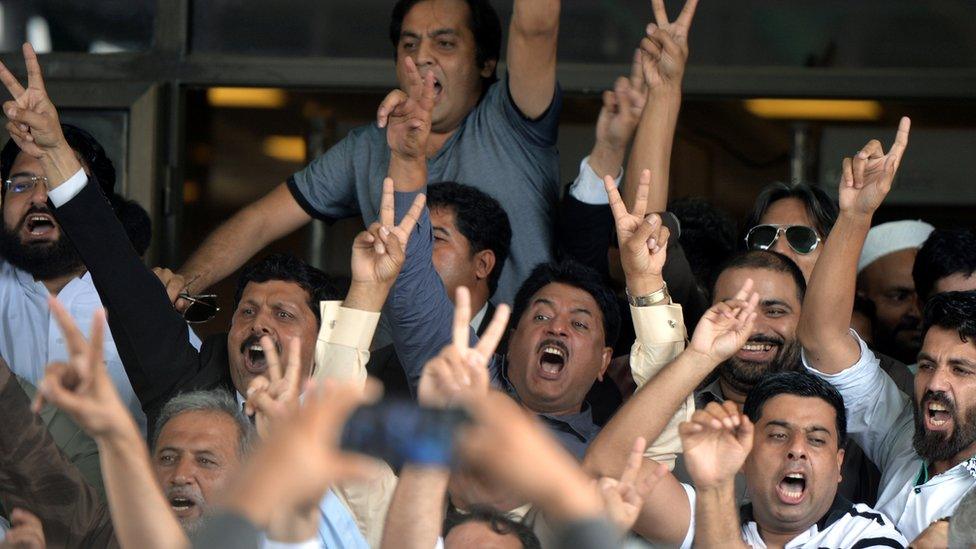
- Published17 July 2017
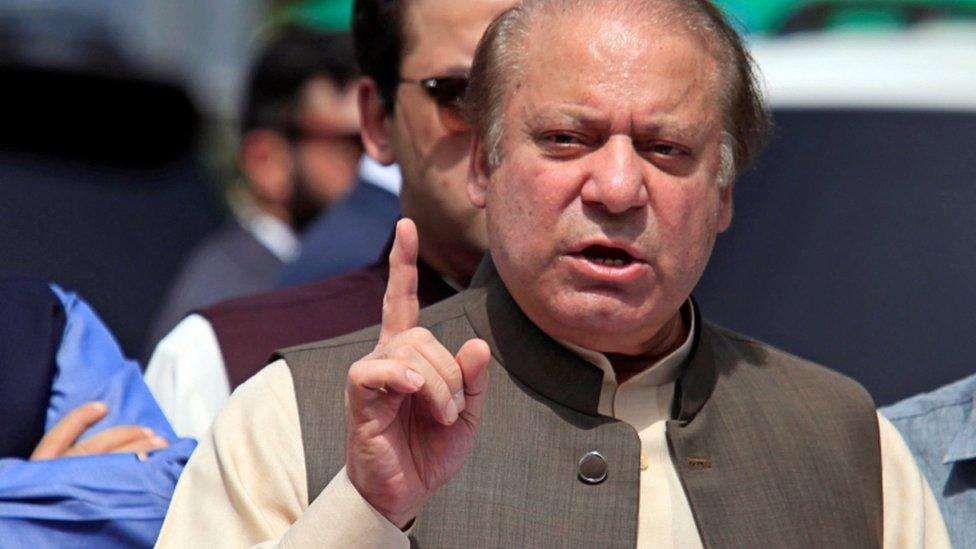
- Published20 April 2017
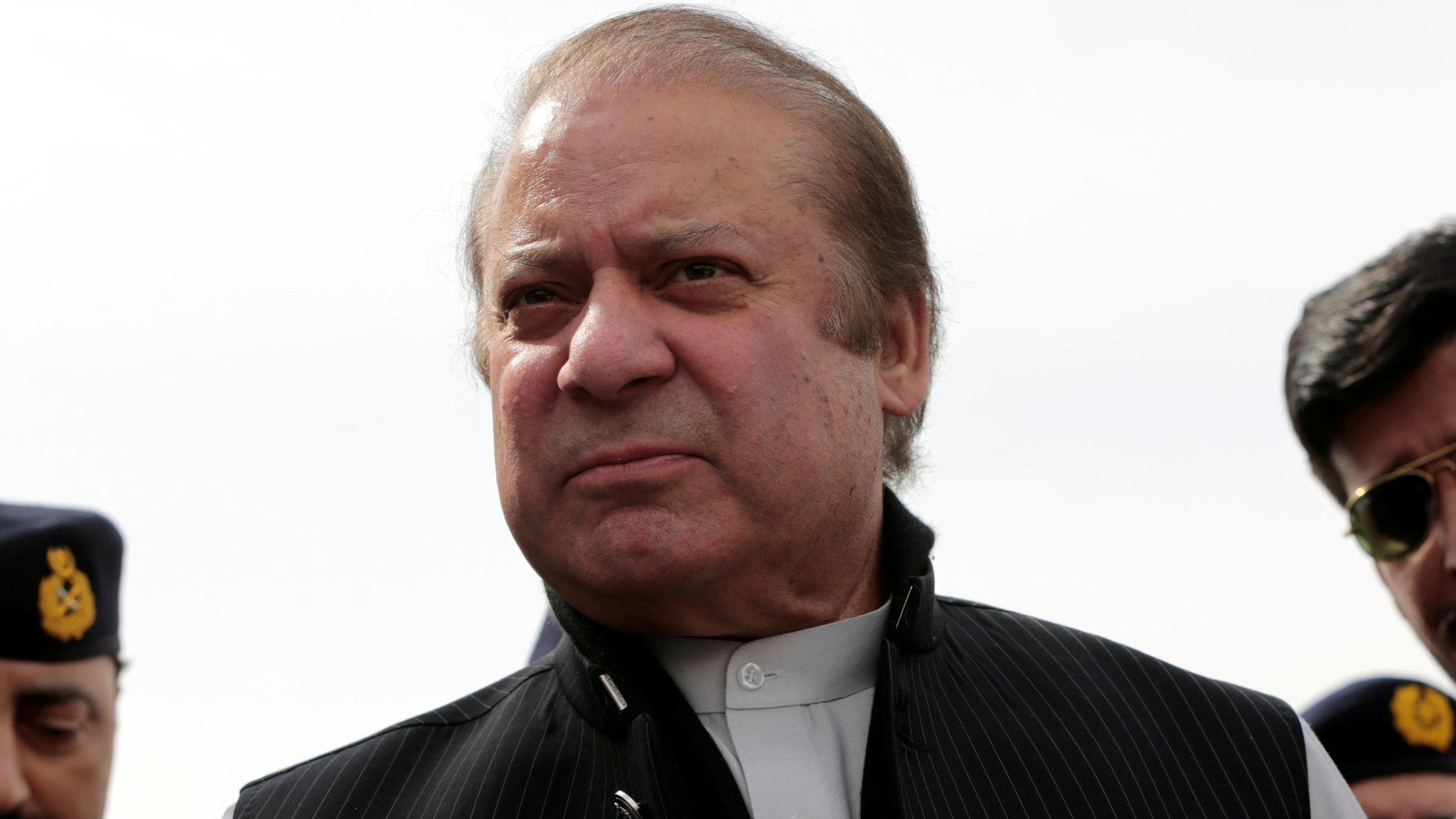
- Published2 February 2024
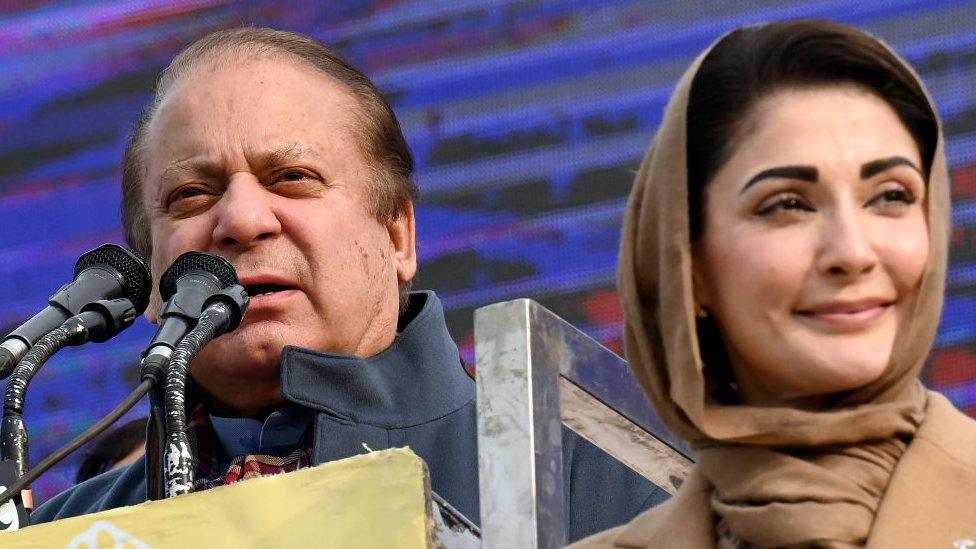
- Published6 April 2016
